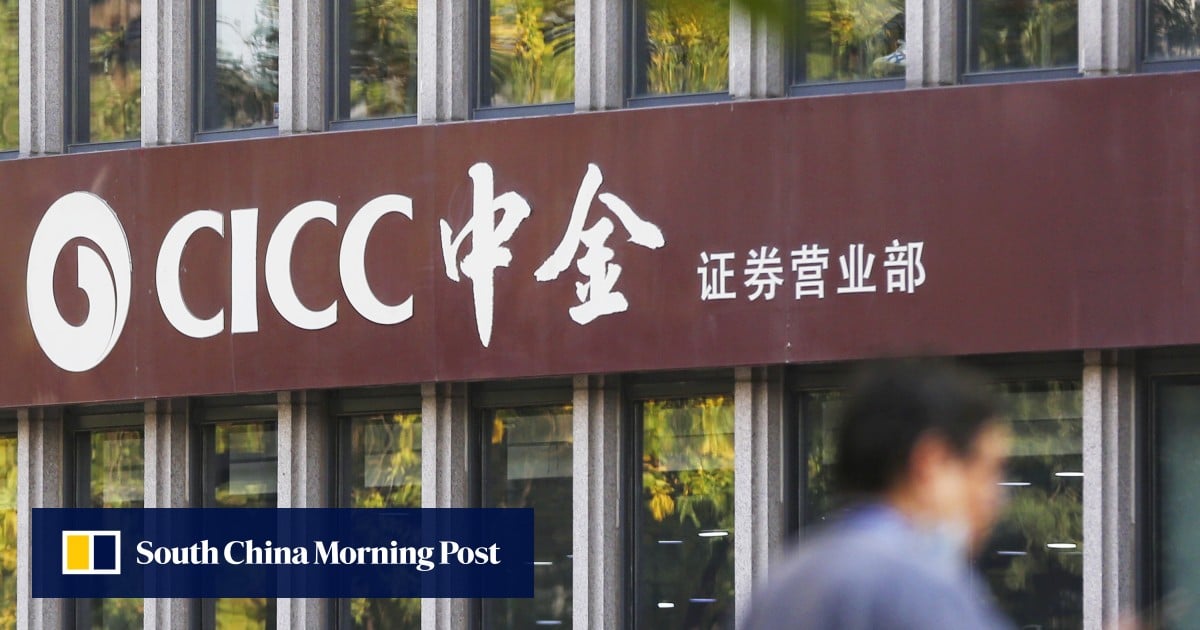A leading Chinese investment bank has amplified calls for Beijing to bolster fiscal support to consumers and businesses, citing a relative gulf in effect for pandemic-era stimulative actions taken by China and the United States.
“The US had bigger fiscal expansion during the Covid years. China needs to crank up fiscal support in the near term to break the vicious spiral as weak economic fundamentals and weak confidence are feeding off each other,” said Kevin Liu, a managing director of CICC Research.
“More fiscal support can encourage consumers and the private sector to invest and expand,” he wrote.
Lawmakers will convene in the Chinese capital next week to review the year’s policy agenda and national economic targets.
In the US, money reached people’s hands, while in China, the money [came] from banks and ultimately flows back to banks
Both China and the US engaged in monetary loosening during the Covid years, although they are presently in different cycles.
China’s M2 money supply – an aggregate value of a country’s liquid assets, including currency in circulation and private banking deposits – had double-digit growth for most of the last two years, CICC said, but it failed to disperse deflationary threats and jump-start private investment, as much of the money was in credit and loans.
More fiscal support the catalyst to revive China consumption, housing market
More fiscal support the catalyst to revive China consumption, housing market
In contrast, the US’ M2 supply was trimmed by about US$500 billion last year to tame inflation. However, the bank said, its economy still fared better, maintaining strong demand and consolidating its lead over China in terms of economic size.
“In the US, money reached people’s hands, while in China, the money [came] from banks and ultimately flows back to banks,” said the CICC report.
CICC added that much of the 42.6 trillion yuan in new loans disbursed for businesses between 2020 and 2023 did not help spur the country’s economic recovery, as they became deposits or were otherwise used to service old debts.
Credit support, compared to direct fiscal disbursement – which, per CICC, carries “almost zero cost” to revive consumption and investment – was designated as an option which generated additional costs and inefficiencies, as businesses tended toward lukewarm responses.
“In China, credit support becoming bank deposits suggested low investment return and tepid credit demand, and fiscal support remained inadequate,” the bank said.
When the private sector is unwilling or unable to expand, the CICC report estimated, the central government needs an additional leveraging of 5 to 6 trillion yuan in the first half of 2024. The bank said such an approach is necessary to bring up the “fiscal pulse”, a measure of the changing impact of the budget on the economy, to 4 per cent from its current three-year low.
China’s plan to grow economy with infrastructure is self-contradictory: analyst
China’s plan to grow economy with infrastructure is self-contradictory: analyst
Several economists and policy advisers have already issued recommendations for direct fiscal backing.
Yao Yang, director of Peking University’s National Development School, has for years suggested direct cash allowances for low-income residents.
“The most effective way to encourage consumption is to issue cash [coupons],” he told Chinese media outlet Yicai.
“A one-dollar cash coupon will multiply to three to five dollars of spending.”


